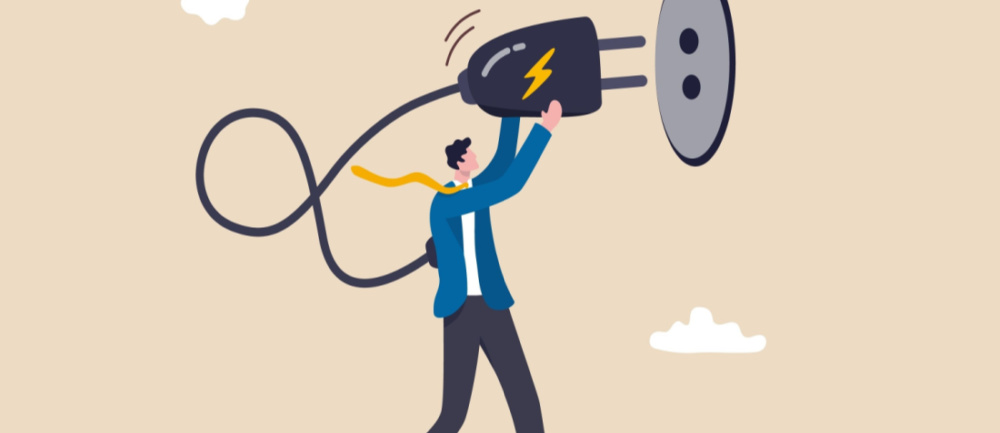More recharge days, please
- 7 Min Read
Recharge days help employees’ mental health and can improve productivity and the bottom line. Win-win for the employee and the company.
- Author: Beth Kaplan
- Date published: Aug 8, 2022
- Categories

About 6-8 months into the Covid-19 pandemic, a trend emerged in the corporate space known as recharge days. Companies implemented recharge days to relieve stress, allowing employees to disconnect and relax by encouraging them to take a day off. Some companies took one step further, not only allowing their employees the day off to recharge; some gave them an entire week. Most, but not all, companies offering recharge days “shut down” all at once while others organize recharge days by division.
It’s important to recognize that we are still living through unprecedented times. The boundary between work and personal life has become thin, presenting opportunities and challenges. The result? Many companies embrace recharge days to increase employee satisfaction because employees love them, but why?
Why are companies implementing recharge days?
Several companies like Disney, Google, Johnson & Johnson, and Red Hat have stated that their employees felt their companies were more “people-centric” by implementing recharge days because they encouraged wellness and allowed them to recharge and refocus. In addition, these companies have acknowledged that employees are reluctant to ask for time off for mental health.
Making recharge days mandatory lifts the stigma associated with mental health breaks and acknowledges that we all must protect our mental health. We are all running fast these days. Employees say that recharge days are a way to slow down in a safe space, knowing that everyone is slowing down together and FOMO is off the table.
The benefits of recharge day
Here are the other benefits of recharge days, as told by employees:
- When everyone in the company has off at the same time, there is little to no pressure to check email or Slack messages for the day. It’s rare for people to be checking into work.
- Lack of email build-up. Unlike Paid Time Off (PTO), you aren’t coming back to a mountain of emails.
- Employees felt more cared for by their companies, and that said companies understood that extended periods of stress were starting to take a toll on their physical and mental well-being. They felt “in it together,” and recharge days enhanced their sense of belonging at work.
Since the onset of the pandemic, workplace stress and burnout have skyrocketed. Indeed reports that 52% of employees are burned out, and 67% believe the feeling has worsened over the course of the global crisis.
Recharge days help employees’ mental health and can improve productivity and the bottom line. Win-win for the employee and the company.
Why aren’t all companies implementing recharge days?
If recharge days are so great, why aren’t all companies implementing them?
Of the companies that have not implemented recharge days, the most popular reason is that they believe their employees would just take time when they need it through PTO. Some even offer unlimited PTO. Unlimited PTO gives employees a better chance of having more time to take for themselves. However, without limits and written rules, employees don’t always feel they have the freedom to take more time off as intended with PTO, unlimited or not.
Likewise, if the culture doesn’t embrace Unlimited PTO, for example, if senior leadership doesn’t take vacation time and that impact trickles down, then unlimited PTO might not work for your company. Research shows that while the companies offer unlimited PTO, their employees may view this benefit as a formality when the culture does not permit the free spirit of taking time off whenever needed or wanted. In addition,
Companies justify PTO as a planned vacation or a way to recharge, but employees cite some challenges with this. There is strong evidence that many employees don’t take advantage of such a benefit and may not take any time off at all for fears like the following:
- Employees complain that in some work cultures, peers compete to show who is the most “loyal” by not taking any PTO.
- The company gives us unlimited PTO, and there is an illusion that it is up to the employee, but it’s not. I’d be chastised if I were to take more than 3 weeks off for the year.
- Employees feel it is hard to enforce boundaries around contact when on PTO. They report that reaching out to people on leave has become the default and that they feel compelled to respond when it happens. It is hard for them to relax during their vacation, and they don’t want to feel conflicted. They are unable to disconnect.
While employers might be concerned about the financial fallout of shutting down for an extra day here and there, the benefits will boost morale and productivity, ultimately helping their bottom line.
Employees need to recharge
The workplace is becoming trauma-informed. Even before the pandemic, changes in the nature of work were accelerating, and employees were stressed. Employees are in the best position to identify when they need a break –but they are not always willing to take it.
Despite the evidence that PTO helps employees avoid burnout and perform better, most employees have not been taking enough of it. Deloitte reports that American workers leave behind an average of 768 million days of unused PTO per year, an average of 6.5 unused PTO days, which works out to 27.2% of PTO days offered by employers.
Given this landscape, here are some calls to action that HR leaders can take to help implement recharge days and help with their employees’ well-being.
- Examine the root cause, recognise and understand why recharge days are needed in the first place. Is it a lack of manager support? Is it because of employee burnout? Is there a crisis of confidence? That said, check with your employee base, don’t assume you know what they want or that recharge days are the solution.
- Present the business case. Your executives should know that global productivity losses of US$1 trillion each year are attributed to the increased prevalence of adverse mental health outcomes and their coexistence with negative physical health outcomes. Show them how recharge days will fuel the business beyond any financial impact. Your employees will come back rested, reinvigorated, feeling better about doing their best work and being their best selves.
- Consider planning recharge days to coincide with holidays. Create a 4-day weekend so that employees can take longer respite. Recharge days may be scheduled near a public holiday season when people are slowing down, so employees can enjoy extended time off.
- Make your communications around recharge days clear. Acknowledge current struggles and promote well-being. Ensure employees know this is not a part of PTO, you are not using time from their vacation days, and that recharge days are being given on top of the company holiday calendar.
- Make sure that your managers are disconnected on recharge days. It’s too tempting to use recharge days as catch-up days. Ensure they know the importance of disconnecting and keeping radio silence with their employees.
I would be remiss if I didn’t also encourage HR Leaders to change the culture of PTO in the workplace. Make vacation policies clear. Make sure senior leadership takes time off and that when they do, it is visible. Create a positive vibe around vacation and offer recharge days to truly honor your people and their well-being.
Dr. Beth Kaplan is a researcher and storyteller with expertise in belonging, belonging in the workplace, and workplace trauma. Beth is currently conducting research and supporting the development of these areas as they inform the future of work. She has 15 years of experience in learning and leadership strategy and is proven at improving retention and transforming company culture.
Beth is currently the global head of leader development and enablement at Dassault Systemes. Before this, she started leader development at Salesforce and is credited as a thought leader in this space. Beth holds an MSE.d and ED.D in Learning and Leadership Strategy from The University of Pennsylvania.
You can reach her by her LinkedIn or email: [email protected] and keep the conversation going on Instagram: @belongingatwork



